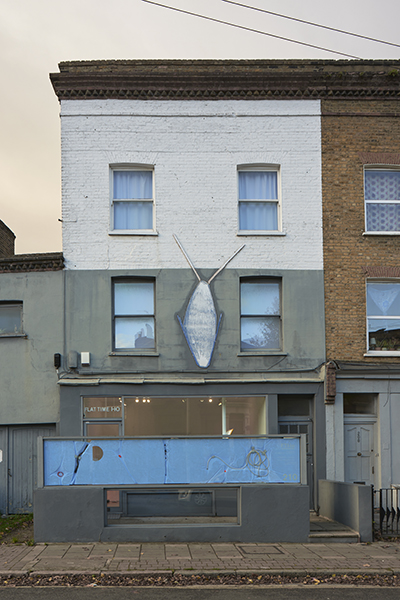Fred Dewey
Established by Christian Mooney, Arcade offers a programme of exhibitions and a constantly evolving platform of performances, live events, talks and publications. Through these varied formats, we aim to find new modes of presentation exploring the developments and complexities in contemporary art, across a range of practices, media and concerns.
Since 2007 Arcade has been a commercial gallery, establishing mid-career artists and fostering young artists, working both in London and internationally through fairs and our 2019—2023 Brussels satellite. Without giving up commercial activity or the focus on artist support and engaging patrons, we are deepening and extending our vision by establishing a new model of cultural institution.
Over the years we witnessed that culture is fundamentally a space of human connection, and from the start, Arcade emphasised process alongside product, and community alongside commerce. Now we aim to take those principles into a new stage of development: we are proud to announce that we have changed status to become a Community Interest Company (CIC); a kind of non-charitable limited company that’s set up primarily for the benefit of a community.
This move, although breaking the mould of what is normally understood as an ‘art gallery’ is a natural evolution that responds to the wishes and dreams of our community of clients, artists, patrons and publics.
To house this evolution of Arcade, we are excited to open a new location in Southeast London, an area we live in and know well. This will allow us to invest in our local community, build on our existing partnership with Flat Time House and nurture our alliances with local arts organisations, creative businesses, community groups, and charitable organisations. We are so grateful to Flat Time House – the former house and studio of the influential British conceptual artist John Latham (1921-2006) – for hosting Arcade during our period of reflection and relocation. Our partnership has provided a public platform to continue our vital exhibition program while examining and responding to Latham’s enduring legacy, particularly his work with the Artist Placement Group (APG). Emerging in London in the 1960s, the APG actively sought to reposition the artist’s role within a wider social context, including government and commerce, while also playing an important part in the history of conceptual art during that era.
Imogen Slater | Director | Art of Regeneration
Allan Hogarth | Good Food Lewisham
Quince Garcia | Roadworks Media | Southwark Youth Justice Service
Our new visual identity for the gallery is a comma or breath mark. This motif is borrowed from the artist Anna Barham who started using it in 2015 to implicate the audience’s breath in the reading of her work. During the several lockdowns of 2020 and 2021, it seemed also to reflect the gallery’s moment of pause and reflection, giving time to the question ‘What is art?’ ‘What is its purpose?’ ‘What impact can it have on society’. The work and friendship of the late Fred Dewey, have been instrumental in helping to understand how Arcade can present and begin to answer these questions.





